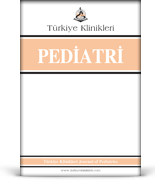Objective: Primary immunodeficiency disorder (PID) comprises a broad, divergent group of disorders which emerge from defects in the development and functioning of the immune system. Our objective was to evaluate and compare emotional and behavioural problems in children and adolescents with PID. Material and Methods: The study involved 97 patients with PIDs following Bursa Uludağ University, Department of Pediatric Immunology from 2021 to 2022 and 82 healthy control. The Strengths and Difficulties Questionnaire, The Revised Child Anxiety and Depression Scale, and SNAP-IV Inattention and Hyperactivity/Impulsivity questionnaire were made to patients with PID and their caregivers regarding their concerns living with PID and to detect concurrent mental health. Results: Of 97 patients, 60 (61.2%) were female and 31 (38.8%) were male. The mean age of patients was 12.23±6.06 years. Common variable immunodeficiency (n=36, 37.6%) and Di George syndrome (n=23, 23.5%) were the most prevalent PIDs in the study, respectively. The children stated higher separation anxiety (p<0.01) panic disorder (<0.01). The parents disclosed statistically higher behavioral problems (p<0.01), social phobia (p<0.01) and depression (p<0.01). Conclusion: This study proved that living with PID negatively impacts children's and adolescents' mental health. Psychological co-morbidities are extremely common amongst those with chronic illnesses. Improvements in health and disease education are required to ensure a high quality of life. To relieve the psychological strain on children and also their caregivers, therapeutic options should be placed, including various support groups and counseling options.
Keywords: Psychology; depression; child; anxiety, seperation; common variable immunodeficiency
Amaç: Primer immün yetmezlik bozukluğu [primary immunodeficiency disorder (PID)], bağışıklık sisteminin gelişimi ve işleyişindeki kusurlardan kaynaklanan geniş ve farklı bir grup hastalıktan oluşur. Amacımız PID'li çocuk ve ergenlerde duygusal ve davranışsal sorunları değerlendirmek ve karşılaştırmaktır. Gereç ve Yöntemler: Çalışmaya 2021-2022 yılları arasında Bursa Uludağ Üniversitesi Çocuk İmmünoloji Ana Bilim Dalında takip edilen 97 PID hastası ve 82 sağlıklı kontrol dâhil edildi. Güçlü Yönler ve Zorluklar Anketi, Gözden Geçirilmiş Çocuk Anksiyete ve Depresyon Ölçeği ve SNAP-IV Dikkat Eksikliği ve Hiperaktivite/Dürtüsellik anketi, PID'li hastalara ve bakım verenlerine PID ile yaşama kaygılarına ilişkin ve eş zamanlı zihinsel bozuklukları tespit etmek için uygulandı. Bulgular: 97 hastanın 60'ı (%61,2) kadın, 31'i (%38,8) erkekti. Hastaların yaş ortalaması 12,23±6,06 yıldı. Çalışmada en sık görülen PID'ler sırasıyla yaygın değişken immün yetmezlik (n=36, %37,6) ve Di George sendromu (n=23, %23,5) idi. Çocuklarda ayrılık anksiyetesi (p<0,01) ve panik bozukluğu (<0,01) daha yüksek bulundu. Ebeveynler istatistiksel olarak davranış sorunlarının (p<0,01), sosyal fobinin (p<0,01) ve depresyonun (p<0,01) daha yüksek olduğunu bildirdiler. Sonuç: Bu çalışma, PID ile yaşamanın çocuk ve ergenlerin ruh sağlığını olumsuz etkilediğini kanıtlamıştır. Kronik hastalığı olanlarda psikolojik rahatsızlıklar oldukça yaygındır. Yüksek yaşam kalitesini sağlamak için sağlık ve hastalık eğitiminde iyileştirmeler yapılması gerekmektedir. Çocuklar ve aynı zamanda onlara bakan kişiler üzerindeki psikolojik baskıyı hafifletmek için çeşitli destek grupları ve danışmanlık seçenekleri göz önünde bulundurulmalıdır.
Anahtar Kelimeler: Psikoloji; depresyon; çocuk; anksiyete, ayrılık; yaygın değişken immün yetmezlik
- Tangye SG, Al-Herz W, Bousfiha A, Cunningham-Rundles C, Franco JL, Holland SM, et al. Human Inborn Errors of Immunity: 2022 Update on the Classification from the International Union of Immunological Societies Expert Committee. J Clin Immunol. 2022;42(7):1473-507. [Crossref] [PubMed] [PMC]
- Thom RP, Keary CJ, Palumbo ML, Ravichandran CT, Mullett JE, Hazen EP, et al. Beyond the brain: a multi-system inflammatory subtype of autism spectrum disorder. Psychopharmacology (Berl). 2019;236(10):3045-61. [Crossref] [PubMed]
- Bhat A, Parr T, Ramstead M, Friston K. Immunoceptive inference: why are psychiatric disorders and immune responses intertwined? Biol Philos. 2021;36(3):27. [Crossref] [PubMed] [PMC]
- Isung J, Williams K, Isomura K, Gromark C, Hesselmark E, Lichtenstein P, et al. Association of primary humoral immunodeficiencies with psychiatric disorders and suicidal behavior and the role of autoimmune diseases. JAMA Psychiatry. 2020;77(11):1147-54. [Crossref] [PubMed] [PMC]
- Heath J, Lehman E, Saunders EF, Craig T. Anxiety and depression in adults with primary immunodeficiency: How much do these patients experience and how much do they attribute to their primary immunodeficiency? Allergy Asthma Proc. 2016;37(5):409-15. [Crossref] [PubMed]
- Gothelf D, Schaer M, Eliez S. Genes, brain development and psychiatric phenotypes in velo-cardio-facial syndrome. Dev Disabil Res Rev. 2008;14(1):59-68. [Crossref] [PubMed]
- Gormez V, Kilincaslan A, Ebesutani C, Orengul AC, Kaya I, Ceri V, et al. Psychometric properties of the parent version of the revised child anxiety and depression scale in a clinical sample of Turkish children and adolescents. Child Psychiatry Hum Dev. 2017;48(6):922-33. [Crossref] [PubMed]
- Abolhassani H, Aghamohammadi A, Pourjabbar S, Salehi Sadaghiani M, Nikayin S, Rabiee A, et al. Psychiatric aspects of primary immunodeficiency diseases: the parental study. Iran J Allergy Asthma Immunol. 2013;12(2):176-81. [PubMed]
- Sowers KL, Gayda-Chelder CA, Galantino ML. Self-reported cognitive impairment in individuals with Primary Immunodeficiency Disease. Brain Behav Immun Health. 2020;9:100170. [Crossref] [PubMed] [PMC]
- Kayan Ocakoglu B, Karaca NE, Ocakoglu FT, Erermis S. Psychological burden of pediatric primary immunodeficiency. Pediatr Int. 2018;60(10):911-7. [Crossref] [PubMed]
- Kuburovic NB, Pasic S, Susic G, Stevanovic D, Kuburovic V, Zdravkovic S, et al. Health-related quality of life, anxiety, and depressive symptoms in children with primary immunodeficiencies. Patient Prefer Adherence. 2014;8:323-30. [Crossref] [PubMed] [PMC]
- Serur Y, Sher-Censor E, Sofrin-Frumer D, Daon K, Sobol-Havia D, Weinberger R, et al. Parental expressed emotion, parenting stress, and behavioral problems of young children with 22q11.2 deletion syndrome and idiopathic autism spectrum disorder. Child Psychiatry Hum Dev. 2023;54(4):1085-93. [Crossref] [PubMed]
- De Smedt B, Devriendt K, Fryns JP, Vogels A, Gewillig M, Swillen A. Intellectual abilities in a large sample of children with Velo-Cardio-Facial Syndrome: an update. J Intellect Disabil Res. 2007;51(Pt 9):666-70. [Crossref] [PubMed]
- Tepper Á, Cuiza A, Alliende LM, Mena C, Ramirez-Mahaluf JP, Iruretagoyena B, et al. Functional dysconnectivity in ventral striatocortical systems in 22q11.2 deletion syndrome. Schizophr Bull. 2022;48(2):485-94. [Crossref] [PubMed] [PMC]
- Ridao-Manonellas S, Fábregas-Bofill A, Núñez-Rueda G, González-Amores M, García-Prat M, López-Seguer L, et al. Health-related quality of life and multidimensional fatigue scale in children with primary immunodeficiencies. J Clin Immunol. 2020;40(4):602-9. [Crossref] [PubMed]







.: Process List